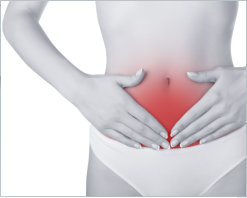[Home] [Irritable Bowel Syndrome] [Diarrhoea] [Digestive Disorders] [Coeliac Disease] [Colon Cleansing] [Constipation] [Digestive Health] [Bowel Problems] [Bad breath] [Candida albicans]





Bowel problems
It’s something you may not feel comfortable talking about, but bowel problems can not only cause significant physical discomfort,
they can also affect our overall health and quality of life.
Intestinal disorders can range in nature and severity and can also produce a variety of symptoms and be brought on by an array of
causes.
If you have bowel problems, you may be experiencing anything from a gut reaction or a gut infection due to poor digestion, a food
intolerance or allergy. Your symptoms may include diarrhoea, constipation, bloating, flatulence and/or abdominal pains.
Gut reactions causing bowel problems
The quality of your diet can have a significant impact on the health of your bowels. Many of the foods we eat irritate and damage
our highly sensitive, complex and vitally important digestive system.
One such food is wheat, which contains the well-known intestinal irritant gluten (a protein which contains gliadin). While a small
amount may be tolerated, the average diet now includes high levels of wheat in the form of bread, toast, pasta, cereals, cakes,
pastries etc.
What’s worse, modern wheat contains very high levels of gluten and the baking process increases its ability to stick to the gut wall.
In cases of severe gluten sensitivity or coeliac disease, the villi (tiny protrusions or ‘fingers’) that make up the small intestine, can
get completely worn away, leading to severe bowel problems and other health complications.
And it is not simply a case of whether you are eating foods that are refined and/or high in gluten, fat, sugar, animal protein or dairy
(all of which can place a strain on the digestive system); it is also relevant whether you are eating foods high in synthetic chemicals,
such as additives, preservatives, colours etc. For instance, unless you eat only organic food, one in three of all the foods you eat
contains traces of pesticides.
The contents of your daily diet (including your intake of beverages, such as fizzy drinks, concentrated juices and alcohol) have the
potential to cause gut inflammation, digestive disorders and increased permeability, as well as aggravate conditions such as Irritable
Bowel Syndrome (IBS), leaky gut syndrome, food sensitivities, asthma, bad breath, eczema and migraines.
Gut infections leading to bowel problems
Sugar - enemy of a healthy gut and efficient digestion
The modern diet is highly conducive to gut infections, because it tends to be high in sugar - a substance that pathogens, such as
yeasts like Candida albicans, thrive on. Feelings of intoxication, drowsiness and bloating after consuming sugar are possible
indicators of a potential imbalance or even overgrowth.
Antibiotics - destroyers of friendly bacteria
Similarly, overuse of antibiotics is another common cause of gut infection. There are around 300 different strains of bacteria in the
gut, most of which are essential for, not only digestive health, but immunity and general health and well-being. They play a key role
in protecting us from harmful bacteria, viruses and other dangerous organisms.
Unfortunately, antibiotics destroy all bacteria in the body - both good and bad - while they do their work. They are unable to
distinguish between friendly bacteria and harmful bacteria.
If the gut contains too many of the wrong type of bacteria (e.g. because the good bacteria have been wiped out or are at very low
levels, and the bad bacteria have taken the opportunity presented by the period of vulnerability to grow and flourish), a number of
bowel problems (and other health problems, such as gut toxicity) can result. This type of bowel flora imbalance is known as
dysbiosis and Candida albicans is a common manifestation of this condition.

Diarrhoea and other digestive health problems




